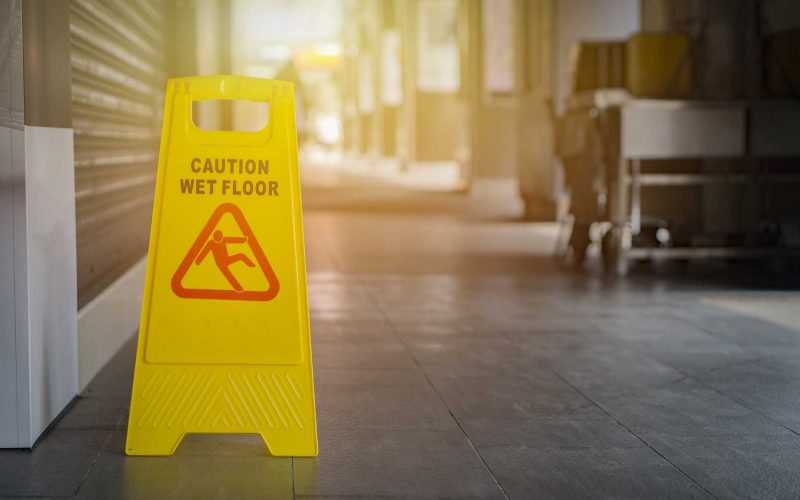Premises liability is a legal term used to describe the responsibility of the property owner, landlord, or business owner to maintain the property in a safe condition. If a slip and fall accident occurs in this space, the property owner or business has a duty of care to make sure that the premises are safe for use.
There are different types of premises liability cases, including claims involving negligence. In that case, the property owner, landlord, or business owner is held responsible for causing the injury through no fault of their own.
Defining Premises Liability
Premises liability covers all locations in which a person may legally enter. It includes any land or physical structure. It does not include public property. Premises liability is considered a strict liability case, meaning that the property owner is not responsible for an accident unless they had the ability to control the event.
Property owners and business owners are required to provide a safe environment for those who enter their property. Property owners must be aware of the dangers of slip and fall accidents and take steps to prevent them from happening.
Slips And Fall On Commerical Properties
Both retail and commercial properties are places where people come together and interact with each other. This includes stores, restaurants, offices, warehouses, parking lots, and any other similar location. Businesses must look out for their employees’ safety as well as their customers.
What Factors Contribute To Fault And Liability
In order to determine whether you have a case involving premises liability, you need to identify who was responsible for the injury. In many cases, this will be clear. However, if you have a claim involving an accident that occurred in a place where you know you are not allowed to be, it is more difficult to determine fault.
In these situations, it is important to contact an attorney who can evaluate your case and help you determine who is responsible for your injuries. If your premises liability case goes to trial, it will be vital for you to present evidence that shows who was at fault for the slip and fall injury. Otherwise, you will lose your case and your injuries will not be covered by your medical providers.
Determining Whether Or Not You Have A Case
There are many factors that can influence your decision about whether or not you have a case involving premises liability. These include:
- Your age: You may be eligible for compensation if you are under the age of 18 at the time of the slip and fall injury. If you are over 18 at the time of the incident, your case may be affected by limitations on the amount of compensation that you can receive due to your age.
- The location of the accident: It is important to understand where the slip and fall took place if you have a premises liability claim. Some areas of the country may have stricter rules about the safety of public areas than others. A slip and fall injury in a public area may require you to prove that it was a reasonable risk to expect that there would be an accident on that property.
- The weather: Weather conditions can also affect how you prove that your injury was caused by someone else’s negligence. If you slipped on ice and fell on your head, it may be clear that weather conditions influenced your accident. However, if you slipped on snow and fell on an uneven sidewalk, it could be more difficult to prove that weather conditions were a factor in causing your injury. If you have evidence of conditions such as wet or uneven surfaces at the time of your accident, this can help prove that the accident was caused by someone else’s negligence.
- Your ability to remember details: If you have been injured in a slip and fall accident and there is evidence that supports your claim, it can help your case if you can remember specific details about what happened at the time of your accident. If there are witnesses who can confirm your account of what happened, this will also strengthen your case.
- Physical evidence: If an accident occurs in a public area, it may be possible to find evidence such as injuries from other people’s injuries and debris from damaged facilities that show that you were injured as a result of someone else’s negligence.
Contacting A Personal Injury Lawyer
After you have been injured in a slip and fall accident, it’s essential to contact a personal injury attorney who can evaluate your case and help you determine who is responsible for your injuries. An attorney can help review evidence and help you determine whether a case involving premises liability might be appropriate for you. Once they have decided that it is appropriate for you, your attorney can begin collecting evidence and preparing for your case in court.
Premises liability claims are common in several types of cases including slip and fall accidents on commercial properties, workplace accidents, and accidents at home due to other people’s negligence. If you believe that someone is responsible for causing an accident, contact an attorney who understands premises liability cases as soon as possible so that they can help evaluate your case and ensure that your injuries are covered by your medical providers in court.




